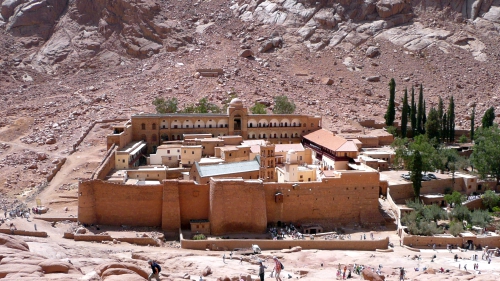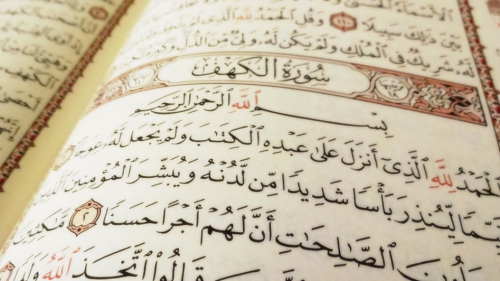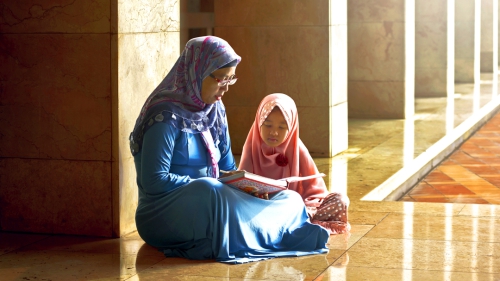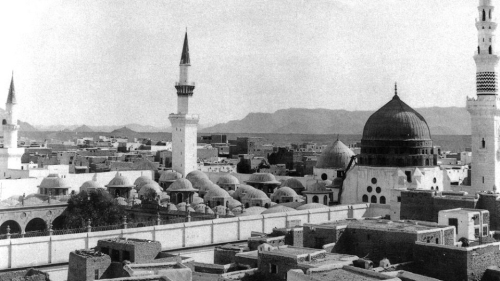The Concept of Tolerance in Islam

The observance of tolerance on all levels is undoubtedly, a major component of the foundation of Islam’s legislation and enhances the methodology employed by Muslims in implementing and promoting this legislation. Accordingly, countless discussions on tolerance exist in the scholarly works produced by Muslims since the demise of the Prophet Muḥammad (peace and blessings of Allāh be upon him), who established the substance for moral, spiritual and social values by means of emulating the theological and philosophical injunctions and guidelines of the holy Qur’ān
The religious instruction and admonishment existing therein were elucidated and exemplified in the Prophetic personality, through the establishment of the Charter of Medina, thereby ably demonstrating that Islam composes of both worship and servitude to Allāh, the Creator, as well as of providing service to His creation.
The Prophet Muḥammad (peace and blessings of Allāh be upon him) remarked, “All the children of Ādam commit errors, and the best of them are those who repent."
In Sūrah al-Mu’minūn, Allāh instructs, “Repel the evil with that which is the best. We know well what they attribute.” (Quran 23: 96)
Jalāl al-Dīn Rūmī, one of the most celebrated Muslim poets, stated, “Listen with the ears of tolerance! See through the eyes of Compassion! Speak with the language of Love!”
There are various types of tolerance that apply to many spheres of life. Cultural tolerance applies to all communities, as each community has its own habits, traditions and culture that it seeks to spread and preserve.
Tolerance of hereditary disposition: The Prophet Muḥammad (peace and blessings of Allāh be upon him) is reported to have declared during the farewell pilgrimage:
"Oh people! Behold, your Creator is certainly One Being. Surely, your father isone person. No Arab is superior to a non-Arab, nor is a non-Arab to an Arab, ora person of fair skin color to a person of dark skin color, or vice versa, except by attaining consciousness of Allāh…"
In another hadith, Zubayr (may Allāh be pleased with him), one of the companions, reported that the Prophet Muḥammad (peace and blessings of Allāh be upon him) stated:
"Lurking towards you is the disease of previous nations, i.e., envy and hatred. This disease is like a razor, and its effect is unlike the cutting of one’s hair. Rather, it leads to the devastation of one’s faith. By Him, in whose control my life is! You will not enter Paradise until you believe, which cannot be achieved until you express love for one another. Should I not inform you of a characteristic that will fortify your faith? Spread peace amongst yourselves."
This Islamic standard of living found further progress during the eras of the Prophet’s successors, namely, the rightly-guided Caliphs, Abū Bakr, ‘Umar, ‘Uthmān and ‘Alī, as well as during the lifetimes of the rest of the Companions. ‘Alī, the fourth Caliph of Islam and the cousin of the Prophet Muḥammad (peace and blessings of Allāh be upon him), instituted the basis for the Chishtī Order, having been one of the closest Companions and the first boy to accept Islam. ‘Ali’s early acceptance of Islam directly from the Prophet Muḥammad (peace and blessings of Allāh be upon him) allowed ‘Alī to be occupied most of the time in the Prophet’s companionship and in serving Islam. ‘Alī had certainly received his education and nurturing during those years, thereby equipping him with moral fiber and spiritual insight.
Moreover, the roots of Taṣawwuf had been planted in both the individual lives, as well as in the communal lives of the Companions.
The companions of the Prophet Muḥammad were leaders in the propagation of tolerance and peace among people. Amongst such personalities, saints and disciples following the Chishtī Ṣūfī school mainly concern themselves with the proliferation of tolerance, thereby repudiating iniquity.
As a result of these principles, the Prophet’s Companions inspired their students and disciples, as well as later generations to detach themselves from the temporary worldly life and live solely to attain closeness to Allāh and strive for His satisfaction. Hence, the movement of zuhd (Islamic asceticism) was formed during the era of the successors to the Companions (tābi’ūn), which subsequently led to the construction of Taṣawwuf and Ṣūfī philosophical thought.
The well-known Ṣūfī and Muslim theologian, Muḥammad Abū Ḥāmid al-Ghazzālī, discusses the idea of tolerance in his treatise, The Alchemy of Happiness. Al-Ghazzālī expansively wraps all of humanity in the tolerant embrace of Tawḥīd, the Oneness of Allāh, “Know that the world is one stage of the stages of the journey to God Most High. All in this station are travelers. Since the destination of the journey of this caravan of travelers is the same, they are all as one. There must be friendship and unity among them and mutual aid.”
Al-Ghazzālī also stresses tolerance as respecting each other’s rights. He urges that human beings must go beyond tepid abidance-tolerance, to the loving embrace of one another.
Another Muslim Ṣūfī, Muḥy al-Dīn ibn al-‘Arabī remarked about religious tolerance:
It is vain to quarrel about religion. Everyone praises what he believes; his god is his own creature, and in praising it he praises himself. Consequently, he blames the beliefs of others, which he would not do if he were just, but his dislike is based on ignorance. If he knew Junayd’s saying – “the water takes its color from the vessel containing it” – he would not interfere with the beliefs of others but would perceive God in every form and in every belief.
This pattern of spiritual revival perpetually continued throughout subsequent generations.
It was amid such religious awareness that the Chishtī Ṣūfī Order was established by Abū Isḥāq Chisht (d. 940) in Herat, Afghanistan.
*****
Source: Academia
















